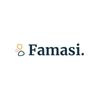100 Days of Famasi
One of my favourite things to say is we have plenty hypotheses on how to build pharmaceutical care as a point of access to healthcare. For a lot of people, especially those with chronic conditions and/or on lifelong medications, the pharmacy is a huge part of how they access healthcare.
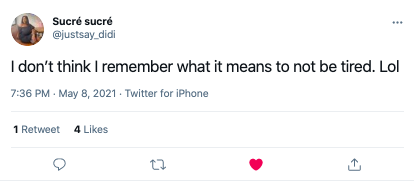
Amidst the first of many co-founder fights to come, Adeola posted a Twitter thread to officially announce that we were opening Famasi for early access (EA). Over the next 100 days, we’ve had to answer a lot of questions — including asking ourselves “Who sent us?”

In the beginning
One of my favourite things to say is we have plenty hypotheses on how to build pharmaceutical care as a point of access to healthcare. It sounds like a lot of unnecessary English but it’s something that I think describes what we’re doing. For a lot of people, especially those with chronic conditions and/or on lifelong medications, the pharmacy is a huge part of how they access healthcare.
By digitizing this interaction between patient & pharmacy, one of our early challenges was to figure out how to build something that can be personalised, yet scalable. We find this tricky because hardly can you find two people with the same healthcare needs. To do this, we ran a pilot with about 20% of our EA users and were confronted with the first issue — Selection bias.
To reduce the impact of the selection bias, we had to redesign the flow such that people with urgent needs could initiate the process by reaching out to us. This birthed a WhatsApp channel & Calendly to book a session. I think this helped as we got about 13% of our present user base through the WhatsApp channel.
The Product
A few things were very clear to us from the get-go. As a tech-enabled service, we needed to build the service first before building the tech to automate & scale. This means we weren’t going to build an app for building sake, at least not until June. To substitute for this, we leveraged the website as an MVP.
At first, it was simply a landing page that allowed us to collect emails. As time went on, the landing page routed traffic to either the mailing list or WhatsApp for urgent needs. At this point, everything still looked disjointed so we had to streamline the process for both customers & the team. This led to rebuilding the website to what it looks like presently.
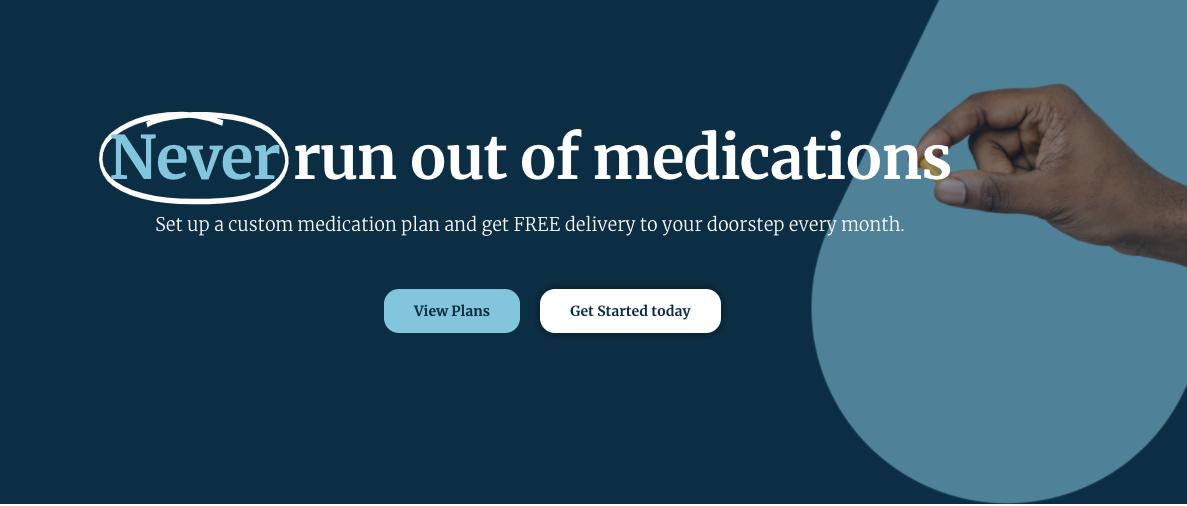
Today, anyone can get started from the website. With enough information, we then call to figure out personalisation & necessary follow-ups. My major headache has been how this onboarding can be smoother. While I’ve been unable to solve this with the ‘Product’, Adeola & Miracle have been able to compensate by building relationships with our customers.
We’re gradually moving into a proper product development phase, having figured out a process we can work with. Presently, we’re designing a Customer portal that allows us interact with our customers better.
Regardless, I’m glad this process works & we’ve been able to ensure customers can have their first package in 4 days. For context, PillPack (a US equivalent) does this in 2 weeks. Ultimately, the goal is to ensure we’re equipped to deliver in under 24 hours - given we sometimes have to verify prescriptions with our customer’s Doctor(s). I’m pretty sure we’ll be able to do this sooner than later.
Logistics
I’ve started to ask myself recently if we aren’t simply just in the logistics business, seeing how much our success is tied to it. It’s no news that logistics in Nigeria is dining with the devil and no matter how bad you think it is, it is worse.
The infrastructure issues notwithstanding, I think the greatest problem with logistics is the people. There’s a general anyhowness that exists with everyone working in that space that makes them deliver with a Manage-It-Like-That attitude.
At the time of writing this, the latest story is that a dispatch rider who took longer to deliver a customer’s orders requested that the customer say “Thank You” instead of commenting on the lateness. We were lucky this was a repeat customer & we have a habit of notifying our customers when we dispatch their orders. Our hope is we can keep customers in the loop as much as possible while we work on ensuring they never have to worry about medications and/or when it gets to them.
Customers
I remember how anxious I was after sending the first invoice that Friday evening. The uncertainty didn’t last long & I don’t think there are words to explain all the emotions I felt at that very moment. We had a customer! Somebody was willing to pay. It was a leap of faith & I’m thankful to Yewande Odumosu for taking it with us. And for many more that she has taken after then. Thinking about it, I think Yewande was the first blessing sent our way.
I think we’ve been really lucky to have a village support us. Our first set of customers were friends & family. Initially, we were concerned about getting the wrong validation if our early customers were friends & family. I think there’s some element of truth to that concern but imagine what it means if your friends & family don’t buy what you’re selling. This is why I’m grateful that we have people who believe in us to give us their money — regardless of the relationship that exists, considering we didn’t pressure them to.
However, this doesn’t mean we’ve only served friends & family. And this is the best part — having people who don’t know you & those who do, buying from you. There’s some validation that people want it & this reflects in our numbers.
We started acquiring users in March, growing steadily at an average of 2x* monthly & on our way to hitting 100 customers. While this number looks small, a decent context to consider is that we're asset-heavy & the underlying infrastructure takes a while to build. Our first task is building an efficient supply chain process. So, maybe we’re not doing bad?
* — This doesn’t include people who got some of our packages as gifts. For example, someone bought 10 of our Ramadan Care packages to gift.
Plans
Considering everything required to make it happen, offering doorstep delivery of medications as a marketplace for Paracetamol & Procold is something we’re not able to do yet. We believe if anyone is reaching out to Famasi at the point they need their medications, it is already too late. This is why we promise to have your medications with you before you need them.
To do this, we decided to create plans for everyone. Regardless of your lifestyle or medical condition, Famasi will create a plan for you such that you set it up once & never have to worry about medications because we make them available before you need them.
For now, we’re prioritising Diabetes, Hypertension, Sexual Health & General Health (Feel Good). However, we’ve also delivered plans for Ulcer, Pain Management as well as seasonal plans like the Ramadan care Plan. One of the plans I’ve come to appreciate is the Menstrual Health Plan where we send women** a Menstrual Care Box every month, with everything needed during their periods.
** — While the plan is for women, the majority of people who paid for this plan are men who want to make their partners’ lives easier. Safe to say, Famasi lo help relationship Twitter.
Personally, I think the best feature of our Plans is sorting the medications. While some people prefer their medications as it is, you find that those who have experienced a Famasi plan sorted into daily pill packs never want to go back. Stripping away this extra layer of stress is what our customers find “mesmerising” & I’m proud of it.
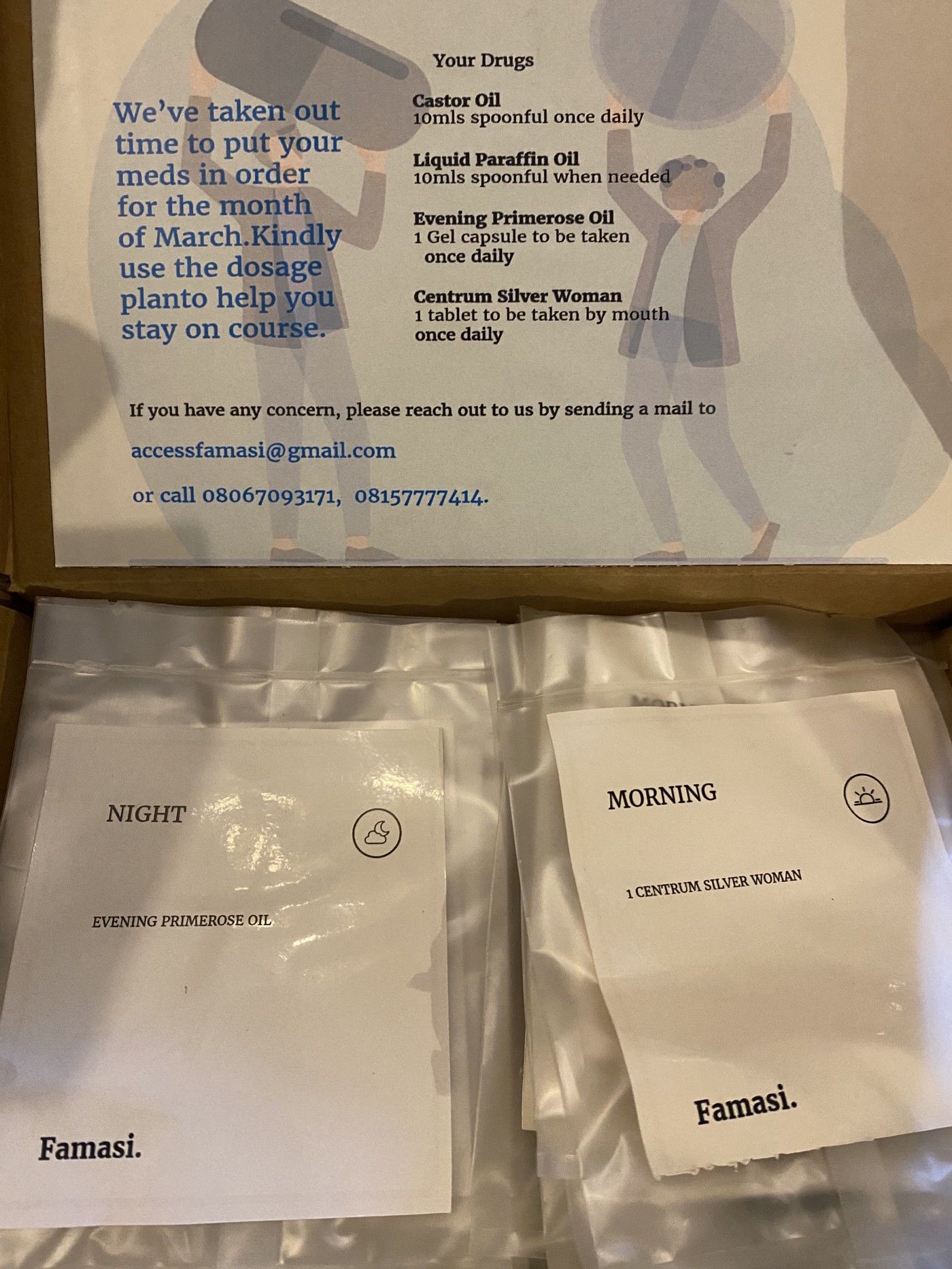
Designing the Famasi pack
Our very first hire was for the Design team. Not Product Design.
Part of the things we figured we needed was to be intentional about the package's experience. We understood & still understand that we won’t necessarily be happy with the packaging in this early stages but it’s always a nice idea to be as close to what the ultimate goal is. As we struggled with delivering to our customers, we also had to suffer issues with getting our supplies delivered to us. This ruined our first set of deliveries & we had to improvise.
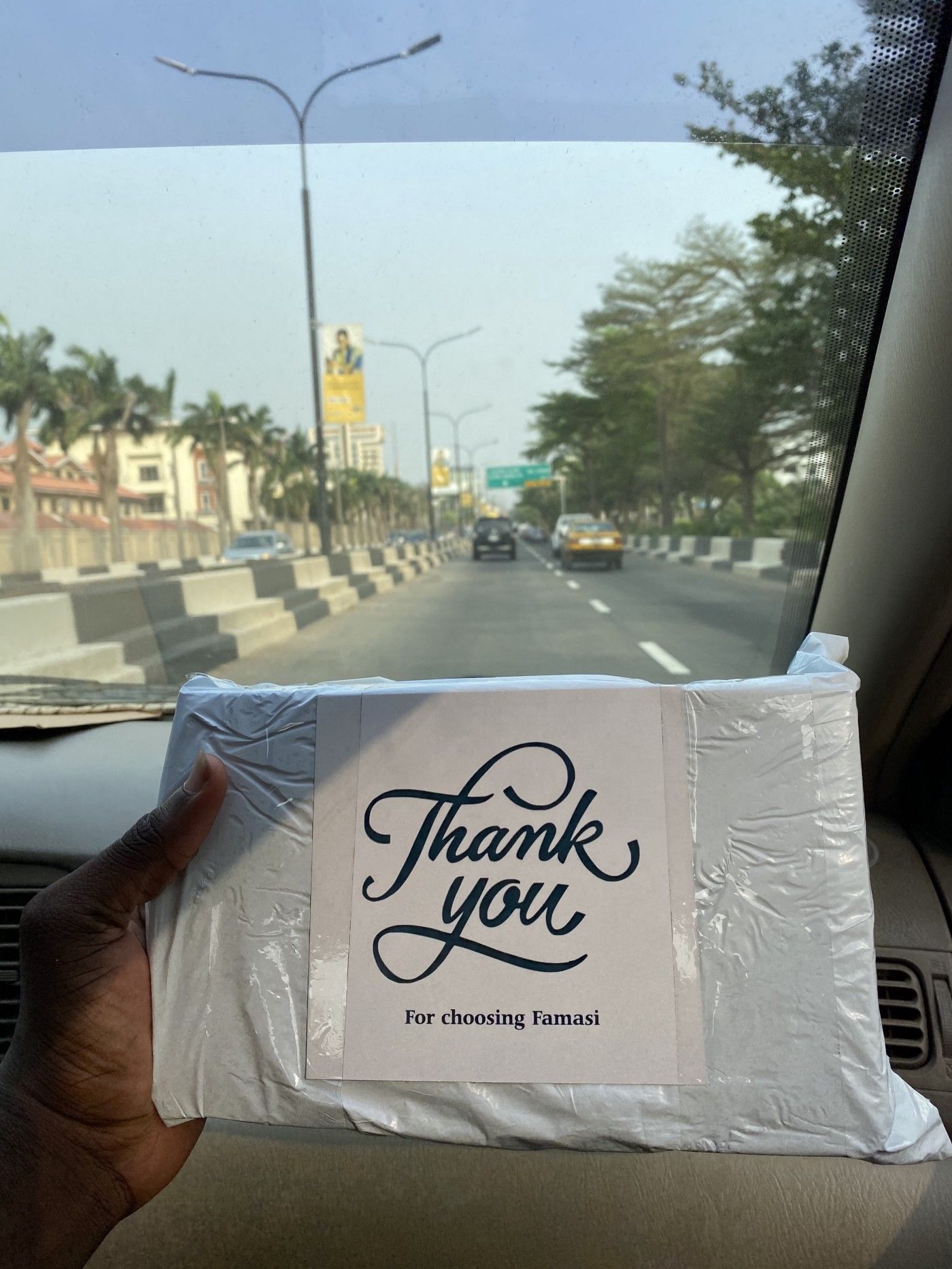
Subsequently, we partnered with Habib & his agency — Nouk.co to help reimagine a package design that works & delights our customers. This ongoing process has shown what Habib is trying to solve with his agency is a big issue. As a brand, there are so many things to consider, it’s easy to miss crucial bits.
Another element of the package is the print. It turns out getting a good printer is a big deal & we’re lucky to have Mueez who comes through for us almost at the snap of a finger.
We obviously still have a long way to go with design but this is one thing I’m very sure will no longer be an issue by the end of June as we come to the end of our redesign process.
Team
I’m very terrible with people. On most days, I’m a One-Man MOPOL. This side of me has been concealed a lot because I’ve worked largely as an individual contributor or in small teams where I’m responsible for many things at a time and not many people. All of these were put to test when we started Famasi.
My default mode is to conceive an idea & run with it. If I need someone else to help me achieve a thing, then it means I’m not equipped enough to do it. Unfortunately, there are only so many things I can do by myself even if I’m capable of doing everything - which of course, I’m not.
“When your priority is strategy, tactical work is not the best use of your time…A general has little use on the battlefront. They should be in the situation room trying to win the war.”— Fu’ad Lawal.
Tweet this
One of the results of this conversation is that I can count how many times I’ve posted through the Famasi social media accounts. On most days, I’m completely oblivious of what’s happening there because the person in charge has now owned it & developed a voice that gets us praises while talking to potential investors. Having to let go of that control has freed me up to do other things with my life & uneasy as it felt, I love it now.
I consider a lot of the things we’ve gotten right to be due to luck. Even though our first hire was for the Design team, the first role we filled outside of Adeola & I was for Customer Experience. I think there’s no point in building a digital service if customer experience/support will be shitty. I do not think we’re there yet, of course, but we’re making progress.
We didn’t get it right from the start & Adeola used to constantly ask how we can make it feel more like a team than it was. This sent us on an exercise where we pretty much had to figure out what made each person deliver better. In one instance, we discovered we gave freedom to someone who wanted to be hand-held & the most experienced person on the team was battling impostor syndrome. After this exercise, contributions increased & there was an increase in taking ownership of tasks. This is the part where I confess having Adeola as a co-founder is a secret weapon.
Beyond ownership of tasks, some things stand out about the team:
- We have someone who sent an 11-minute voice note to his parents explaining Famasi, his role, what we’re about & why they should get on.
- Taiwo kept dreaming about how to design the customer portal & had a Figma prototype ready even though he’s not a designer.
- Someone said, “I agreed to work on Famasi because it was you but now, I’ve come to love the idea & I’m willing to do more to make it succeed”.
- We heard variations of “Famasi was my first time doing this & I’m looking forward to learning more.”
I can’t be more proud of the team.
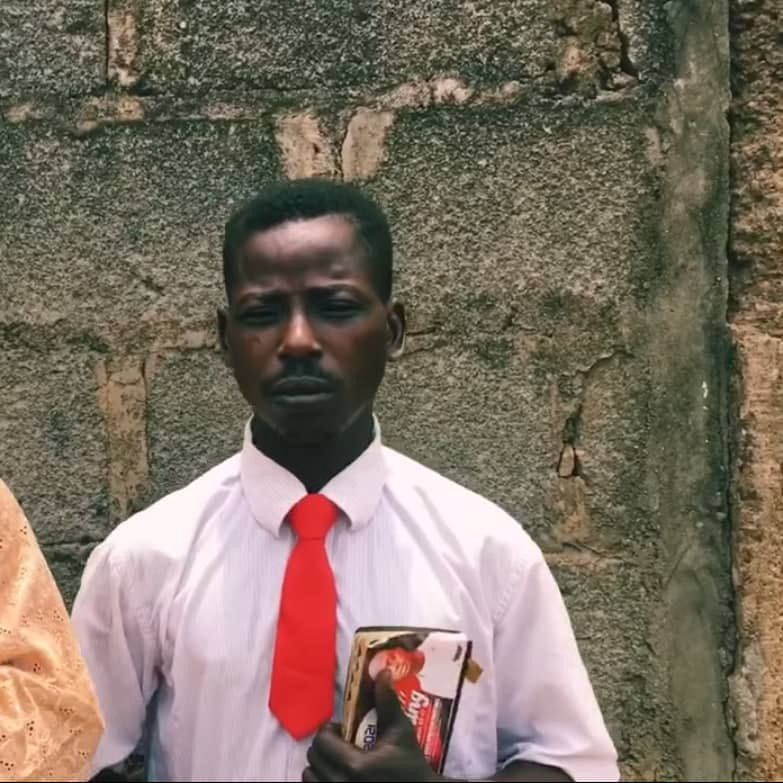
Funding
Beyond being constantly tired, running Famasi means we’re also constantly broke since we’re spending from our pockets. While we’re aware we can’t bootstrap this to the level it requires & we’ll need extra funding at a point, it was important to run the early experiments on our time & dime. The idea was to figure out how many hypotheses we can test on our dime, then scale the ones we think will help us win with external funding.
This sounded pretty straightforward until it wasn’t. We’ve been lucky to not only have friends that believe enough to buy from us, but also send us money to say “This is for running Famasi”. Thank you, Ray, Bayo & Mikhail. I don’t know that there’s a way to repay you besides ensuring that we make this count for something.
I think somewhere in between our money, friends’ donations & revenue from customers, we’ve been able to tackle enough things to validate some of our early hypotheses.
One of the important decisions we had to make was to tell potential investors we weren’t ready. There’s this feeling of “What if they go away with their money?” However, we’ve been fortunate enough to have people who genuinely believe in Famasi & want us to win. We had our first potential investor a week after we launched & I remember how our faces lit up at that very idea.
I’m not going to lie, I think we have enough validation to help us build for the next 16 months.
Famasi & the next 16 months
Having successfully streamlined our process, we’ve defined the things we need to achieve by Q3 2022 & how to get there. The first is to move into a Product Development phase, starting with our customer portal. We’re also launching a referral scheme soon that allows our customers to earn cash rewards when they refer someone.
Perhaps the biggest thing is we’re investing more in content & consumer education, as well as aspects of the business that puts us less at the mercy of third parties. At this point, there’s only so much that I’m allowed to share but I think we’re about to enter the definitive part of building Famasi & playtime is over.
It’s time to get serious.
Umar Faruq Akinwunmi
Co-Founder/Products & Growth
